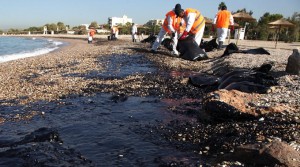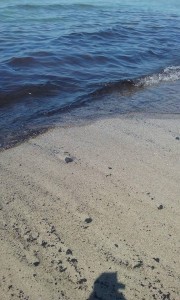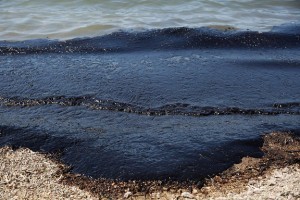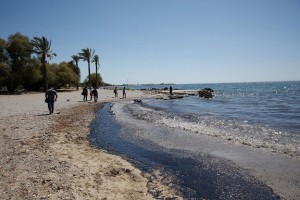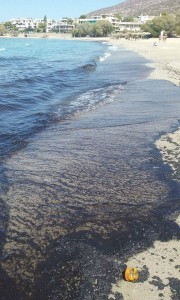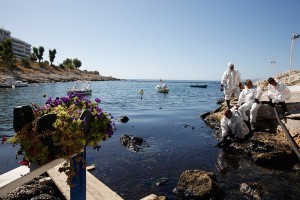Clean-up crews are scrambling to contain an oil spill from a Greek tanker as it menaces some of Athens’ most popular beaches.
The vessel, Agia Zoni II, was carrying 2,500 tonnes of fuel when it sank off the island of Salamis on Sunday.
Nearby beaches were soiled by the oil, but officials believed it could be contained given mild wind conditions.
Five days on, parts of the slick have drifted miles away to the resort of Glyfada, on the Athens Riviera.
The much-loved beaches of Voula and Vouliagmeni are being threatened by the thick black tide.
Environmental groups have complained that officials bungled their response to the spill, saying it was allowed to spread out of control. The oil spill has caused a political row with all opposition parties accusing the government of failing to recognise the scale of the disaster, while Maritime Minister Nikos Kouroumblis coming under pressure to resign by major opposition party New Democracy (ND). The Piraeus prosecutor has brought criminal charges against those responsible for the Agia Zoni II.
WWF Greece expressed dismay that “a country with heavy tankers traffic has proven unable to protect its beaches from an initially small-scale incident”.
“Nobody thought the slick would reach us,” Glyfada mayor Yiorgos Papanikolaou told Skai TV. “If someone had warned us even on Tuesday, we would have taken precautions.”
Conditions could worsen over the weekend in the wake of a forecast mini-heatwave with temperatures expected to reach 38 degrees on Sunday.
Authorities sealed the shipwreck on Tuesday and there was no further spillage, the coastguard said.
Tank trucks are working to clean up the pollution, helped by floating cranes and offshore anti-pollution vessels – including one sent by the EU.
It remains unclear what caused the 45-year-old tanker to sink. Its captain and chief engineer, the only people on board at the time, have both been charged with negligence.
Ask me anything
Explore related questions
